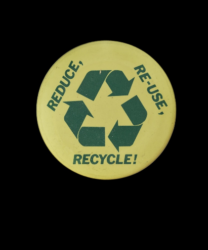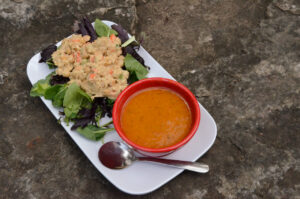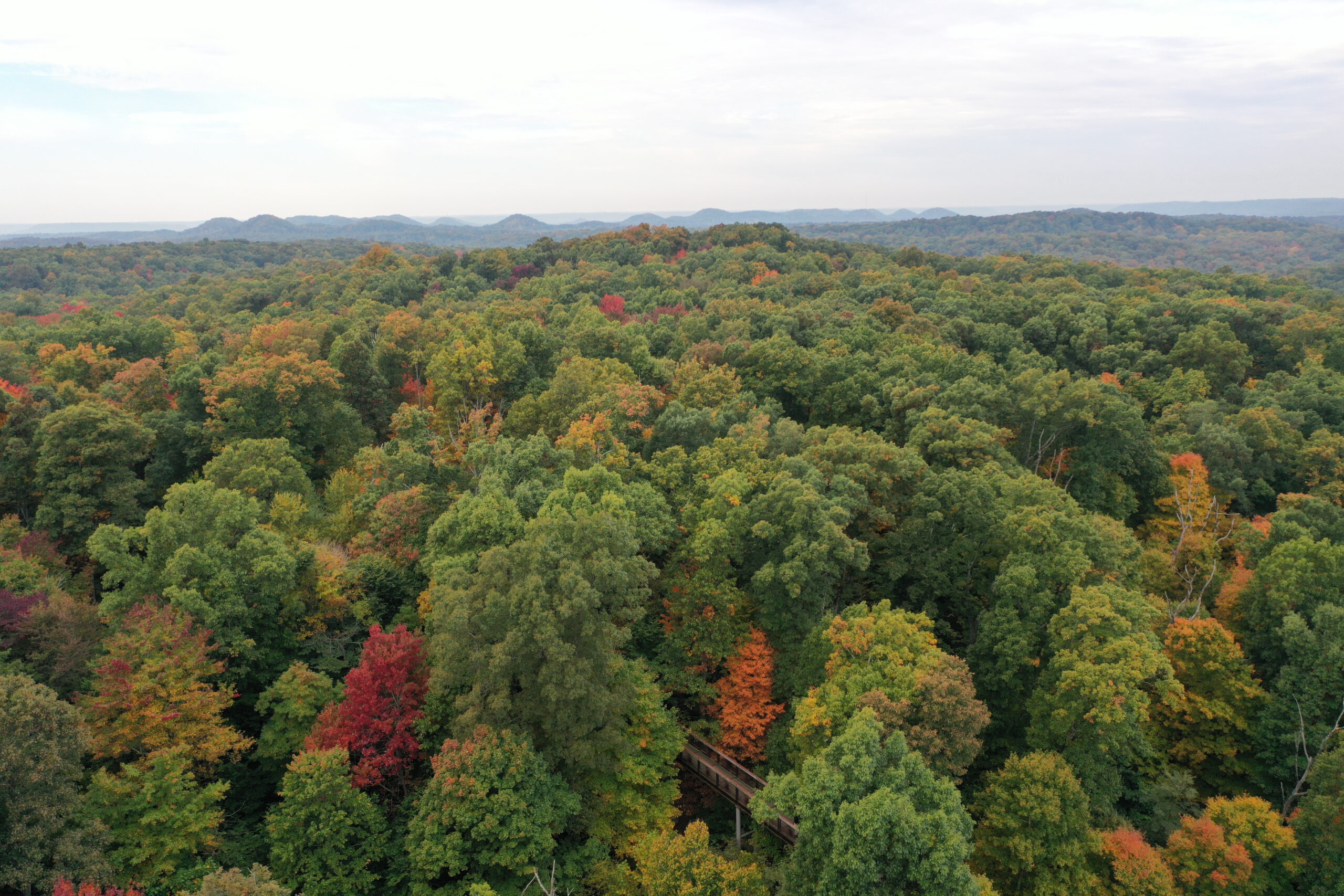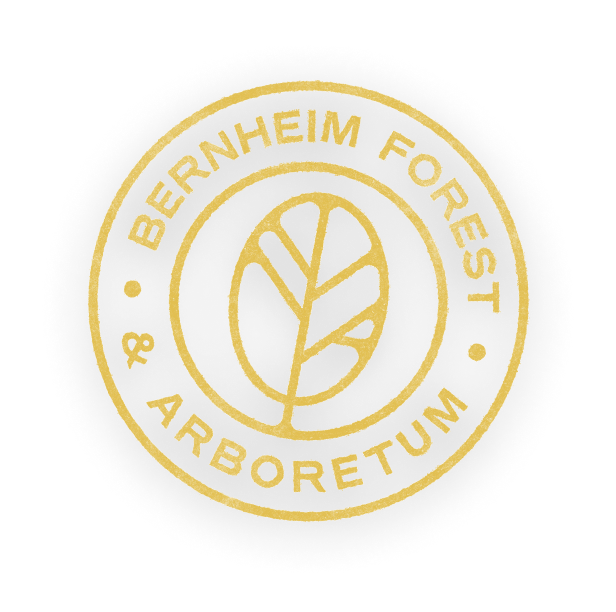By Kellie Hall
The concept of reduce, reuse, recycle goes back to the first Earth Day on April 22, 1970. Earth Day was created by Gaylord Nelson in a direct response to the Santa Barbara oil spill in 1969. After the first Earth Day, Nelson and colleagues started a contest to encourage designers to create a universal, recognizable symbol to put on recyclable products. Out of 500 entries, architect Gary Anderson won the contest and gave us the symbol and logo we use today.

Reduce, reuse, recycle is practiced daily at Isaac’s Café as we strive to follow Bernheim’s ecological stewardship vision. To reduce the waste that goes to the landfill, we serve customers on reusable plates that can be washed and sanitized after each use. When we do use paper plates, we source them from a brand called “Re.source,” which are made of recycled paper fiber. Products for to-go orders like soup cups and spoons are made of corn talc and are compostable. Straws are provided only upon a customer’s request and are made from the waste products of agave after it is processed for syrup.
Reducing food waste is a financial goal as much as it is ethical – wasted food cannot be turned into profit and contributes to the food waste epidemic. The Café focuses on preparing appropriate portions daily so nothing expires before it is used. If something is left over from a catering job, it is sold in the café the next day as a special. Leftover soups and “mistake” sandwiches are eaten by deserving staff instead of being thrown away. If produce goes bad before it’s processed, it goes into the woods for the squirrels.
Reuse is the most practiced of the three R’s in the Café. Bread ends are very useful for making bread pudding – a tasty and profitable way to use something that otherwise would not be served to customers at all! They also make delicious homemade croutons for soups when baked and seasoned with fresh herbs. One Café staff member saw a future for the empty bread bags and used them as trash bags in her car. Another staff member learned the caps of Ale-8 bottles aren’t recyclable and started to make art with them. When there is stale coffee or cold brew, it’s used to make espresso-flavored cupcakes. If there are cupcakes that go stale, they’ll be reformed into a top selling cake pop. All “waste” holds a future purpose when you’re mindful and creative.
 My favorite way to practice reuse is making vegetable broth from vegetable scraps. To make vegetable broth, we use carrot peels, celery leaves, onion skins, stems of leafy greens, and herb stems. The scraps are simmered in a pot of boiling water with a couple bay leaves until the water is dark golden brown and aromatic. The product is a rich, nutritious broth you can’t buy in a store. It makes our homemade soups flavorful and hearty.
My favorite way to practice reuse is making vegetable broth from vegetable scraps. To make vegetable broth, we use carrot peels, celery leaves, onion skins, stems of leafy greens, and herb stems. The scraps are simmered in a pot of boiling water with a couple bay leaves until the water is dark golden brown and aromatic. The product is a rich, nutritious broth you can’t buy in a store. It makes our homemade soups flavorful and hearty.
Any materials that aren’t compostable or can’t be reused go to our recycling partner, WestRock Recycling Solutions, located in Louisville. Plastics are washed and turned into packaging for a variety of products. Our cardboard is sent to paper mills owned by WestRock and is made into new products immediately. Three bins are located by the dining area labeled “landfill,” “recyclable,” and “food waste,” so customers are aware of where their trash is going.
Bernheim’s Arts in Nature program features artists who showcase nature’s beauty through natural, reused, or recycled materials. For example, 2023 Environmental Artists in Residence, La Vispera created “Nocturnal,” which features scenes of night life in the forest on panels inspired by stained glass made from single use plastics brought in by Bernheim staff, including the Café. These beautiful pieces, and many more, can be found throughout the forest during your next visit.
Protecting the environment through reduce, reuse, recycle has never been more urgent as climate change and overflowing landfills continue to have devastating effects on the planet. It is our responsibility in the Café as nature lovers and global citizens to do our part to protect the forest we love. Every time the three R’s are practiced in the Café or in your own home, a positive impact is made.

